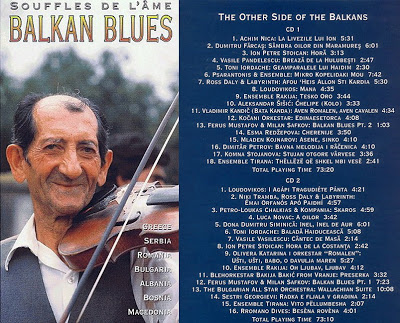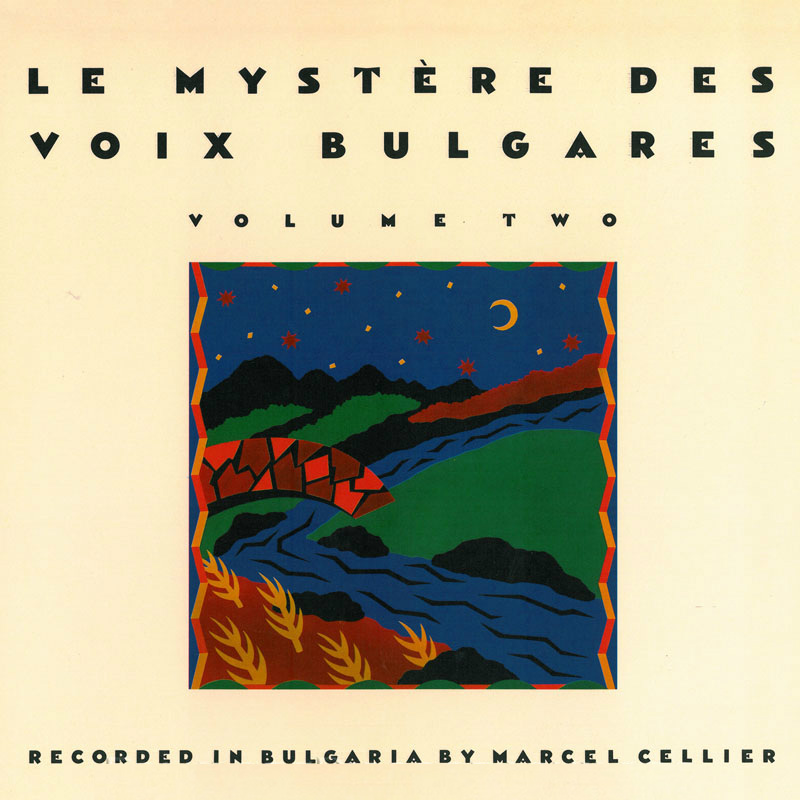My grandfather passed away on his farm in Bulgaria in late 2015; meanwhile, I was recovering from flu 11 time zones away. The funeral was scheduled immediately, and I decided against traveling, in part because I’d barely make it in time. Instead, disconnected, I watched the city of San Francisco, listened to music that made me feel closer in spirit, and attempted to mentally surround what had happened. Today I’m writing about that music, cultural grafting, and sweet Balkan vibes.
Music in this post:
![]()
![]()
![]()
![]()
![]() Various — Balkan Blues – Souffles de L’Ame (2013) [youtube]
Various — Balkan Blues – Souffles de L’Ame (2013) [youtube]

![]()
![]()
![]()
![]()
![]() Bulgarian State Radio & Television Female Vocal Choir— Le Mystère des Voix Bulgares Vol. II (1988) [youtube, spotify]
Bulgarian State Radio & Television Female Vocal Choir— Le Mystère des Voix Bulgares Vol. II (1988) [youtube, spotify]

You don’t consciously think of the rules for English syntax until you’re teaching someone who doesn’t already speak it, which prompts curious and novel introspection. Similarly, I didn’t discover that I identified with pieces of cultural identity until I consumed music and movies that resurfaced them.
It’s a feeling when you find signs of yourself in the external world and reach out to absorb them. When I was much younger and living in my parents’ house, I would binge watch hundreds of movies on our computer through the magic of peer-to-peer downloading. Once, I stumbled upon Emir Kusturica’s When Father Was Away on Business (Отац на службеном путу), and though the political commentary on former Yugoslavia was beyond me then, I felt a pull that was mysteriously personal. The movie presented a web of familiarity through its characters’ mannerisms and worldview, though also some differences that didn’t quite line up with my picture (Serbo-Croatian? It sounds weird. And who is Tito?). For one of the first times, I was doing what I read somewhere is called cultural grafting, or in other words, identifying with and consuming cultures adjacent to my own.
It’s particularly easy to graft amongst the Balkan countries, where the cultural and ethnic tensions are enough to burst a country into splinters, and yet to an external observer those differences may appear minute and almost arbitrary. Throughout my personal travels in the region I found that food, structure of pop music, and un-sunny dispositions shared major threads, varying mainly in pronunciation. Another driving force that makes it so tempting to borrow music and culture from neighbors is the fact that on an absolute scale, there just aren’t that many citizens of each country (for example, in 2011, there were 7.4M Bulgarians living in the country, and 2M in the greater diaspora. Montenegro, one of the smallest countries, has only 620k nationals). So artistic spillover is highly likely.
After my grandfather passed away, I listened largely to two collections comprising music from many countries. The first is the excellent folk survey of Eastern European music Balkan Blues, and the next is the second volume of the Bulgarian Women’s Choir Le Mystère des Voix Bulgares series. Particular highlights of Balkan Blues include 5. Toni Iordache – Geamparalele Lui Haidim, 9. Rakija Ensemble – Teska Oro, the eminently sample-able 15.King Ferus Mustafov – Balkan Blues: Part II, 23. Dona Dumitru Siminica – Inel, Inel de Aur, 32. The Georgiev Sisters – Rakda e fljala v gradina, The highlight of the women’s choral album is the first track, also one of the more recognizable songs from the region, Kaval Sviri.
I’ll let the music mostly speak for itself in this article with less of my usual dissection, but there are two general and obvious things I’ll say: Toni Iordache is a savant of the cimbalom, and the dissonant compress-and-release of the women’s choir is part of what makes it gripping for me. This music captures sadness I haven’t felt elsewhere.
The beauty of grafting is that sometimes the sentiment hits home perfectly, and sometimes the uncanny valley of almost-familiar sends appreciation awry. Ultimately you’re only finding veins of similarity, and the material really can be foreign. At moments, the 7/8 and 9/8 time signatures of instrumentals in the perennially popular (and often tragically low-brow) Chalga/Turbo-folk pop genre almost hearken back to a less kitsch Čoček.
And sometimes I’ll hear a foreign tune that strikes closer to home, stirring in memory my grandfather on the edge of his chair, only feet from the television by the bed, gazing silently at the folk music channel until falling asleep.
In Memoriam


 – Hot fuego
– Hot fuego